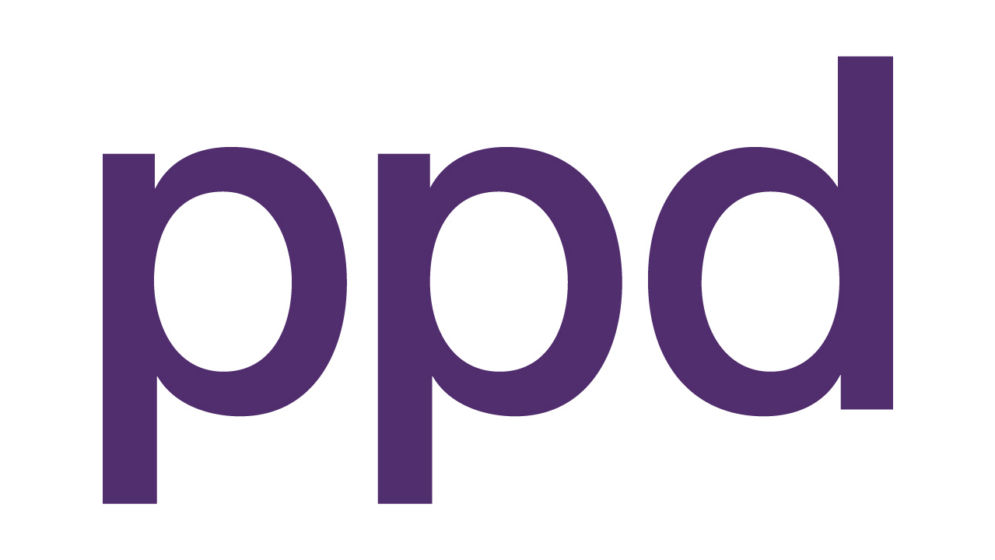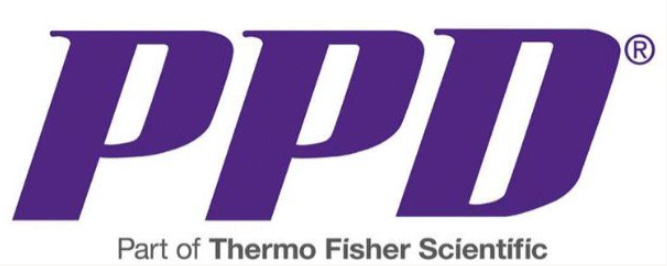Are you someone who loves the satisfying thud of a dart hitting the board, or maybe the friendly competition that comes with a well-played game? Then you're in for a treat, because the world of ppd darts offers a fantastic avenue for players of all skill levels to connect, compete, and truly enjoy the sport. It's more than just throwing darts; it's about joining a vibrant community that shares your passion, so it's almost a perfect fit for anyone looking to get more involved.
Partners Promoting Darts, often called PPD, is a big name in the dart scene, especially for those who enjoy soft-tip darts played on electronic machines. This organization helps bring dart players together across North America, creating chances for folks to play in organized leagues and exciting tournaments. It's a way, you know, to really get into the competitive spirit while having a lot of fun.
This article will take you through what PPD Darts is all about, how you can get involved, and what makes it such a special part of the dart playing experience. We'll look at everything from setting up your player account to understanding how scores work and where you can find places to play, so you'll be pretty well-informed by the end.
Table of Contents
- What is Partners Promoting Darts (PPD)?
- Getting Started with PPD Darts
- Understanding PPD Stats and Gameplay
- The PPD Darts Community
- Frequently Asked Questions About PPD Darts
What is Partners Promoting Darts (PPD)?
The Partners Promoting Darts, or PPD, is a group that sanctions dart play. It's made up of amusement machine operating companies, also known as vendors, who are spread out across North America. These vendors are key because they provide the dart machines and help organize the local leagues and events. It's like they're the backbone of the whole operation, making sure players have places to throw their darts and ways to compete, you know? This setup allows PPD to create a broad and connected system for dart players everywhere.
Its Role and Reach
PPD's main purpose is to foster organized dart play, offering a structured environment for players to enjoy the game competitively. They set up the rules for leagues and tournaments, making sure everything is fair and consistent. This organization plays a big part in supporting the growth of soft-tip darts, giving people a reason to keep playing and improve their skills. It's pretty important for the sport, really, because without such a body, it would be much harder for players to find organized competition and a common set of standards.
The reach of PPD is quite extensive, covering a wide area across North America. This means that if you're looking for a dart league or a tournament, there's a good chance PPD has a presence in your general vicinity, or at least a partner vendor nearby. This broad network makes it easier for players to get involved, whether they're seasoned pros or just starting out. They are, in some respects, a major facilitator for dart enthusiasts.
The PPD Network
The PPD network is essentially a collection of these amusement machine operating companies. Each company is a full participating member, like Cap Amusement, which has joined the ranks. These vendors are the ones who put the dart machines in bars, pubs, and other venues, and they also manage the local leagues and events. They are, you know, the local faces of PPD, providing the immediate connection for players to the larger organization.
This network helps to standardize the dart playing experience, meaning that whether you play in one city or another, the general rules and ways of participating are quite similar. It's a way to ensure that players have a consistent experience, which is pretty helpful when you're traveling or just want to know what to expect from a PPD event. They really do try to keep things uniform for everyone involved.
Getting Started with PPD Darts
If you're thinking about jumping into the world of competitive darts with PPD, the first step is pretty straightforward. It all begins with getting yourself set up in their system. This is crucial because it's how they keep track of players, scores, and payouts. So, it's a bit like getting your membership card for a club, really.
Creating Your PPD Account
Each person who wants to play in any PPD tournament or participate in a PPD league needs to set up a PPD user account. This account is very important because it's how you'll be identified within their system, and it's also how you'll receive any money you might win from leagues or tournaments. They actually require this for payouts, so it's not something you can skip.
Setting up your account is typically a simple process. You'll usually follow a link provided by your local vendor or league organizer to get started. This account will hold all your player information, including your stats, which we'll talk about a little later. It’s the first real step to becoming a recognized player within the PPD community, providing a way for them to keep everything organized.
Joining Leagues and Tournaments
Once your PPD user account is all set up, you're ready to start playing! PPD offers both leagues and tournaments, giving you different ways to compete. Leagues are usually ongoing, with teams or individuals playing regularly over a period of time, while tournaments are typically one-off events that can last a day or a weekend. You know, it gives you options depending on how much time you have.
To get into a league or tournament, you'll often work through your local PPD vendor. They can tell you about available leagues in your area, how to sign up, and what the specific rules are for each competition. For some remote tournaments, there might be a small fee, like $2 per player, which goes towards a remote tournament fund. This fund helps support the prizes and operations for these types of events. It's a fairly common practice in organized play.
Understanding PPD Stats and Gameplay
A big part of competitive darts, especially with PPD, is tracking your performance through statistics. These stats give you a clear picture of how you're doing, and they also help the organization rank players and ensure fair matchups. It's pretty interesting how they keep track of everything, you know?
PPD and MPR Stats Explained
PPD uses specific stats to measure a player's ability. A major tournament PPD or MPR stat is established for a player once they have thrown a minimum of 120 darts of one game type. After that initial threshold, the stat continues to be calculated based on up to their last 1,000 darts in X01 and/or Cricket games during any PPD event. This way, your stat reflects your current playing level rather than just a snapshot from a long time ago. It's a rather dynamic way of assessing skill.
"PPD" often refers to "Points Per Dart" in X01 games, showing how many points you score on average with each dart. "MPR" stands for "Marks Per Round" in Cricket, indicating how many marks you get on average in each round. These stats are really important because they help determine your ranking and can affect which division you play in during tournaments, ensuring you compete against players of similar skill. This helps keep the competition fun and balanced for everyone, which is pretty neat.
Remote Play and Tournament King
PPD also offers remote play options, which means you can compete against others even if you're not in the same physical location. This is a great way to participate in tournaments if you can't make it to a physical venue, or if you just prefer playing from a familiar spot. They have maps available to show where you can find PPD remote play and streaming locations. It's quite convenient, actually.
Starting on March 20th, PPD began moving its daily remote tournaments (DRTs) to the Tournament King (TK) system from Arachnid. This move aims to improve the remote tournament experience, possibly offering new features or a more stable platform for online competition. This change shows that PPD is always looking for ways to improve how players can engage with the game, which is a good thing for the community. It's a pretty recent development, so it's worth keeping in mind.
The PPD Darts Community
Beyond the scores and tournaments, PPD is really about building a community of dart players. It's a place where you can meet new people, form teams, and share your love for the game. The social aspect is a huge draw for many participants, you know?
Nationals and Major Events
One of the biggest highlights for the PPD community is the PPD Nationals. This is a major event where players from all over come together to compete for top honors. The scale of these events is pretty impressive; for instance, one weekend of PPD Nationals coverage saw 1,734 total players competing across 34 different divisions. This means there's a place for almost everyone, regardless of their skill level. It's a very big gathering for dart enthusiasts.
These national events are not just about the competition; they're also a chance for players to connect with others who share their passion, catch up with old friends, and experience the excitement of a large-scale dart festival. It's a real celebration of the sport, offering a memorable experience for everyone involved. You can really feel the energy there, too.
Finding a Place to Play
If you're wondering where you can actually play PPD darts, the best way is often to check with local amusement machine operating companies or look for "Partners Promoting Darts" venues in your area. Many bars and arcades that have electronic dart boards might be part of the PPD network. They often have signs or information about joining local leagues. You can also look for "PPD remote play map" or "PPD streaming map" online to find locations that support remote play, which is pretty handy.
These locations are the hubs where the PPD action happens, providing the physical space for leagues and casual games. Connecting with your local vendor is a good starting point, as they can guide you to the nearest active leagues or open play opportunities. It's a simple way to get involved and find your dart home. Learn more about finding local dart communities on our site.
Frequently Asked Questions About PPD Darts
What does PPD stand for in darts?
In the context of darts, PPD stands for "Partners Promoting Darts." It's an organization that sanctions and supports soft-tip dart leagues and tournaments across North America. It also refers to a player's "Points Per Dart" average in X01 games, which is a statistical measure of their performance, you know?
How do I get a PPD user account?
To get a PPD user account, you typically need to contact a local PPD-affiliated amusement machine operating company (vendor) or a league organizer in your area. They will usually provide you with a link or instructions to set up your account, which is required for participating in PPD leagues and tournaments and for receiving payouts. It's a pretty straightforward process once you find the right contact.
Where can I find PPD dart locations or remote play options?
You can find PPD dart locations by reaching out to local dart league organizers or amusement machine vendors in your region. Many bars and venues with electronic dartboards are part of the PPD network. For remote play, PPD provides online maps, like a "PPD remote play map" or "PPD streaming map," that can help you locate places offering these options. It's a good idea to check those resources.
PPD Darts really offers a wonderful way to engage with the sport, whether you're aiming for competitive glory or just looking for a fun way to spend time with friends. With its organized leagues, exciting tournaments, and a strong community backing it all up, there's always something happening. It's a system that truly supports players, from tracking your progress with detailed stats to providing opportunities for remote play. So, if you're ready to pick up your darts and join a welcoming group of fellow enthusiasts, exploring what PPD Darts has to offer is definitely a step worth taking. Learn more about Partners Promoting Darts and find out how you can become part of this thriving dart community today.
- Compa Coffee Roasters
- Khalil Ben Gharbia
- Buffalo Bayou Brewery
- Joanie Ouellet
- William Shatner Grandchildren



Author Details:
- Name : Prof. Chesley Little MD
- Username : tony69
- Email : boyle.jacynthe@rowe.net
- Birthdate : 2006-12-12
- Address : 316 Imani Branch Apt. 452 Madonnafort, AK 21239-9210
- Phone : 1-220-742-9443
- Company : Marvin LLC
- Job : Administrative Services Manager
- Bio : Quo nesciunt ullam natus. Tempore culpa voluptas et dolores dolorem aliquid. Ut quae dignissimos blanditiis consequatur dolore.
Social Networks
Twitter:
- Url : https://twitter.com/crunte
- Username : crunte
- Bio : Possimus reiciendis sit laboriosam dolor. Modi delectus impedit qui. Ullam quae omnis ullam necessitatibus et quos.
- Followers : 5454
- Following : 2719
Facebook:
- Url : https://facebook.com/caroline.runte
- Username : caroline.runte
- Bio : Sed odit eaque quaerat repudiandae deserunt.
- Followers : 387
- Following : 1101
